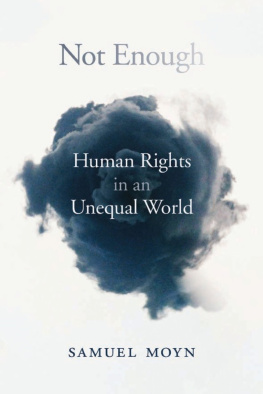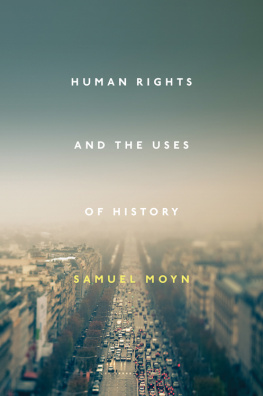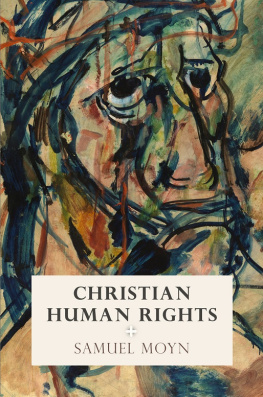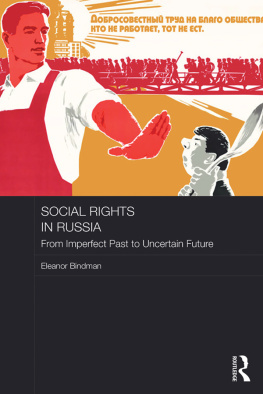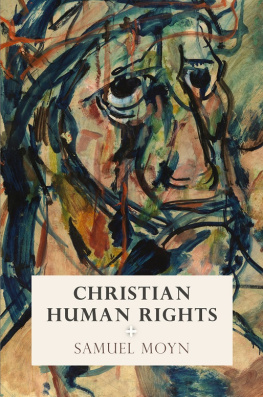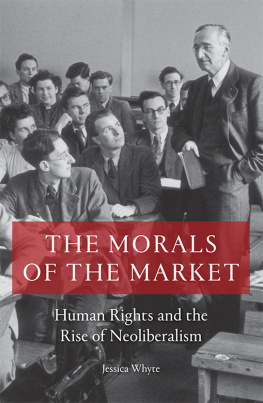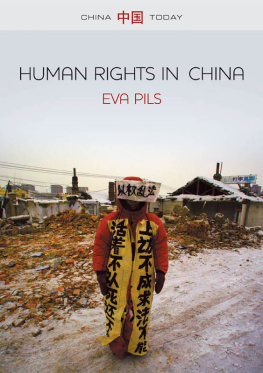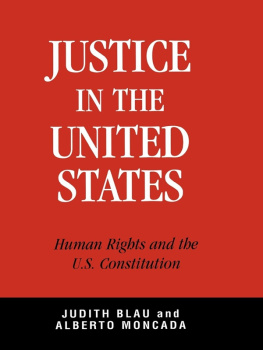Not Enough
Human Rights in an Unequal World
SAMUEL MOYN
THE BELKNAP PRESS OF HARVARD UNIVERSITY PRESS
Cambridge, Massachusetts
London, England
2018
Copyright 2018 by the President and Fellows of Harvard College
All rights reserved
Jacket image: Mafalda Mota / EyeEm Getty Images
Jacket design: Annamarie McMahon Why
978-0-674-73756-3 (alk. paper)
978-0-674-98482-0 (EPUB)
978-0-674-98481-3 (MOBI)
978-0-674-98480-6 (PDF)
The Library of Congress has cataloged the printed edition as follows
Names: Moyn, Samuel, author.
Title: Not enough : human rights in an unequal world / Samuel Moyn.
Description: Cambridge, Massachusetts : The Belknap Press of Harvard University Press, 2018. | Includes bibliographical references and index.
Identifiers: LCCN 2017041518
Subjects: LCSH: Human rightsHistory. | EqualityHistory. | Welfare economicsHistory. | NeoliberalismHistory.
Classification: LCC JC571 .M8635 2018 | DDC 323.09dc23
LC record available at https://lccn.loc.gov/2017041518
For Joe
Contents
History can never remain the same, because every era must rethink its past. Our perspective on our origins changes, and for that reasonnot simply because new facts have been foundno account of how the present emerged is definitive for long. Since histories of human rights began to be written, however, I have often felt that the enterprise faces an especially challenging obligation not to lose track of how fast our present is transforming. Human rights are some of our highest ideals, and they have become so in an age when lived history can seem to be accelerating so quickly that written history cannot match the pace of change.
Historians had never written about the origins and path of human rights before the principles ascended to the status of a moral lingua franca in global affairs mere decades ago. Soon after the search for their background began, no earlier than the 1990s, scholars began to dispute how to conduct their inquiries: the uplifting liberal internationalism of the initial postCold War moment suddenly looked very different after the Iraq War and the disturbing chaos it unleashed. Having first been tasked with celebrating how the invention of human rights marked the beginning of the end of history, scholarship now became a forum in which to debate the propriety of liberal interventionism abroad, the progressive credentials of nongovernmental advocacy, and the outstanding visibility given to the spectacle of mass atrocity. After their romantic veneration, human rights now courted rude vilification for their entanglements with power: they were steps not from the dark plains of Cold War political compromise into the sunlit uplands of moral purity, but from a bipolar world to one of unilateral American hegemony, with all its benefits and costs.
I participated in such debates a few years ago, though I worried that they were belated, especially after the full consequences of the 2008 financial crisis became clearer. History may be condemned to lag behind the present, but it also has to try to catch up. And there is no doubt that the transition from an era of liberal ascendancy to one of liberal crisis demands an attempt to rethink where our highest ideals of human rights come from. The passages from state citizenship to global cosmopolitanism and from Cold War politics to millennial ethics matter. But the transformation from the era of the welfare state to that of neoliberal economics now appears the most important setting for recounting the vicissitudes that human rights, along with so many of our other concepts and practices, experienced in the later twentieth century.
After my first book on the topic, The Last Utopia, much discussion took place about whether the contemporary idealism of human rights was really as contingent in its formation and shallow in its roots as I had tried to suggest, and whether the actors and locales I singled out in placing stress on a North Atlantic revolution in moral sensibility, political rhetoric, and nongovernmental advocacy in the 1970schiefly in response to authoritarianism in Latin America and totalitarianism in Eastern Europewere the right ones. Unrepentant as I remain about my emphases, I was nevertheless humbled by two lines of criticism. For one thing, I ended my history on the brink of 1980, precisely when it began to seem interesting and an unprecedented density of human rights politics truly began. The centuries before the appearance of human rights, no less than the historic 1970s moment of their emergence, were undoubtedly fascinating. But the complex decades of the ascendancy of human rights, especially after the Cold War ended, are even more so. For another, I identified a chronology that matched that of the shift in political economy from the welfare state to the neoliberal era without mentioning the relation of the human rights revolution to that shift, or indeed the relation of human rights to distributive outcomes and political economy before or after it. In particular, some Marxists asked, was not the story of the rise of human rights yet another example of a shift in superstructure that made sense only when taken as an occasion for attention to the base of capitalism that is supposed to determine everything built on its foundation?
This rewrite of the history of human rights offers another look for a new era in which, for all the current endurance of liberal political hegemony in the face of strong ideological opposition, its self-imposed crises seem more evident than before, and the relevance of distributive fairness to the survival of liberalism is impossible to avoid. What can make the study of history exciting is that its infinity of sources and our change in perspective can allow two books on the same topic by the same person to bear almost no resemblance to each othereven if the intellectual challenges and opportunities of writing history pale beside the importance of the public and political uses it should serve. On both counts, this book places the trajectory of economic and social rightsentitlements to work, education, social assistance, health, housing, food, and watercenter stage. Summing up what is known so far about how such norms have figured in morality, politics, and law across time, it narrates their ascendancy in relation to broader contests over distributional fairness.
This book still locates a pivot in the middle of the postwar age, as anticolonial nationalism saw its plans to globalize justice foiled, as redistributive socialism began to enter crisis, and as the twin alternatives to those prior endeavors of human rights and neoliberal economics began to define our present. But against complacent apologetics and corrosive attack alike, my goal is to stake out a moderate position between those who claim that human rights are unrelated to political economy and distributive injustice (except of course to provide the essential tools for reining them in) and those who think the human rights revolution has been a mere sham masking inhumane domination.
It is very revealing that the prestige of human rights politics and law, from the late Cold War into our time, has shared the same lifespan as their neoliberal Doppelgnger. Yet this is not because they abet its victories directly. Instead, it is because the human rights revolution went along with a crisis of ambition in the face of an increasingly neoliberal political economy and the distributive injustice it wrought, which determined the guise of reform and how far it went. Human rights politics and law have both enjoyed successes and suffered limitations alike as a result of their prominence in a neoliberal age. Human rights politics and law went some way to sensitizing humanity to the misery of visible indigence alongside the horrific repression of authoritarian and totalitarian statesbut not to the crisis of national welfare, the stagnation of middle classes, and the endurance of global hierarchy. Focusing on sufficient protections, human rights norms and politics have selectively emphasized one aspect of social justice, scanting in particular the distributional victory of the rich. It is as if in our highest ethics, material gains for the poor were all that could matter, either morally or strategically, when human rights placed any stress on material injustice at all.

